Technically, increasing the load impedance is decreasing the load, i.e., putting lower demands on the supply. That said...
You can easily get a voltage higher than the Zener voltage by pushing more than the Zener current through them. I figure you have about 34mA going through the zener; the older ones are usually spec'd at 20mA, and newer ones tend to be spec'd at 5-10mA. More current, higher voltage.
Even higher current, you can make it blink...after it heats up enough, there's enough electrons in the conduction band to make it a short. Of course, as a short, it doesn't dissipate much power, so it cools down...and so on, ad infinitum.
